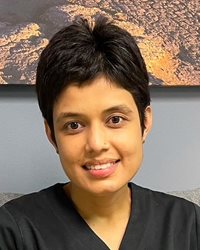
Related
Top stories






LifestyleWhen to stop Googling and call the vet: Expert advice on pet allergies from dotsure.co.za
dotsure.co.za 2 days
More news

















Traditional healers hold a significant place in South Africa's healthcare system, particularly in rural and marginalised communities where access to modern healthcare may be limited. These healers are often referred to by different names, such as traditional doctors, herbalists, or sangomas and inyangas. Their role extends beyond simply treating physical symptoms; they are cultural custodians, spiritual guides, and community leaders. The Traditional Healers Organisation (THO) in South Africa plays an important role in bridging the gap between traditional healing practices and mainstream healthcare and serves as a platform for collaboration, advocacy, and the preservation of indigenous healing traditions. The Traditional Health Practitioners Act of 2007 was introduced to provide a legal framework for the registration, training, and practice of traditional healers. The Act established the Interim Traditional Health Practitioners Council of South Africa (THPCSA) as the regulatory body responsible for overseeing traditional health practitioners, including traditional healers.
While significant progress has been made in recognising and regulating traditional healing, challenges remain. These challenges include issues related to standardisation, training, collaboration with modern medicine, and ensuring patient safety. In recent years, efforts have been made to bridge these gaps between traditional and modern medicine and in certain healthcare facilities traditional practices have been integrated.
For most people, traditional medicine arose from a pre-scientific era, whereas artificial intelligence (AI) is a phenomenon developed through computer science. Herein lies a unique opportunity to integrate AI into the realm of traditional healing in South African healthcare to preserve and amplify indigenous knowledge while benefiting from modern technological advancements. AI has the potential to complement traditional healing practices in many ways, including:
AI can assist in documenting and preserving traditional healing knowledge, which is often passed down orally. Natural language processing (NLP) algorithms can transcribe spoken knowledge into written form, creating a digital repository of ancestral wisdom, accessible to future generations and researchers.
AI can aid traditional healers in diagnosing illnesses by analysing symptoms, patient histories, and even traditional diagnostic methods. Machine learning algorithms can identify patterns and suggest potential causes, enabling traditional healers to make more informed decisions.
Traditional healers use a wide array of herbs for their healing practices. AI-powered databases can help identify the medicinal properties of these plants, potential interactions, and dosages, providing traditional healers with evidence-based insights to refine their remedies.
AI algorithms can analyse patient data and recommend personalised treatment plans that align with traditional practices. These recommendations can take into account a patient's medical history, cultural beliefs, and spiritual aspects, enhancing the holistic nature of traditional healing.
AI-powered platforms can enable traditional healers to conduct remote consultations, particularly useful for patients who cannot travel to their physical locations. Additionally, these platforms can serve as educational resources, helping to share traditional healing knowledge with a wider audience.
AI can facilitate collaboration between traditional healers and Western healthcare practitioners. By integrating AI-enhanced tools into both systems, practitioners from different backgrounds can share insights and work together for the benefit of patients, ensuring a more holistic and comprehensive approach to healthcare.
AI can support research into the efficacy of traditional healing practices by analysing patient outcomes, trends, and long-term impacts. This research can lead to better integration of traditional practices within the larger healthcare system.
Mobile health (mHealth) apps have been developed to provide support to traditional birth attendants (TBAs) who play a significant role in rural maternal care. These apps offer guidance aligned with traditional practices while integrating modern medical knowledge, ensuring safe deliveries and maternal care.
Cultural sensitivity is a critical consideration when integrating AI-enhanced solutions into alternative medicine practices in South Africa. Traditional healing practices in the country are not just medical treatments; they are deeply intertwined with cultural beliefs, spiritual values, and historical legacies, and as such ensuring that AI technologies respect and integrate these cultural aspects is essential for the successful adoption, acceptance, and effectiveness of such solutions.
By working with traditional healers to document and preserve their knowledge, support their practice and integrate diverse healthcare practices, AI will contribute to the preservation of the rich cultural heritage and indigenous wisdom in South Africa.